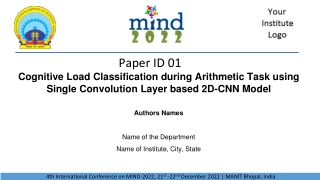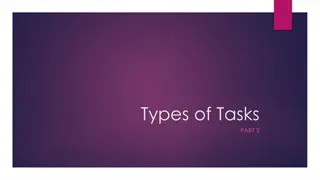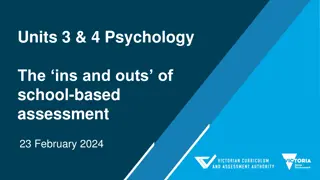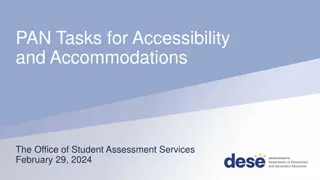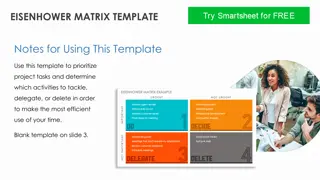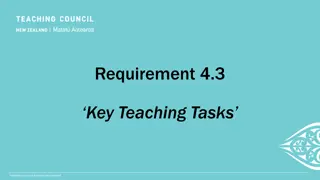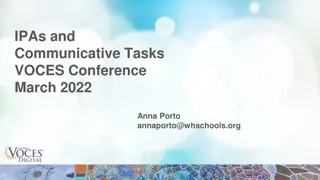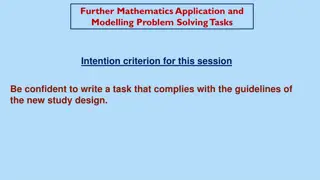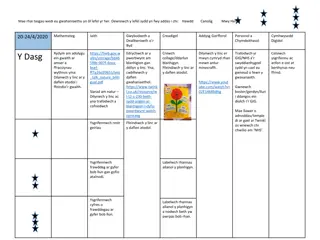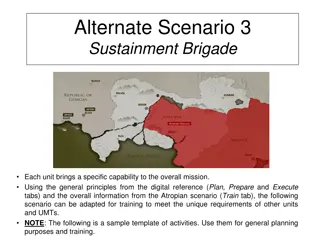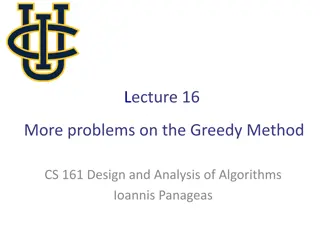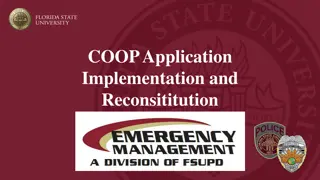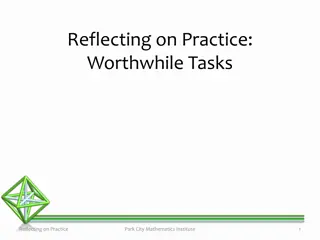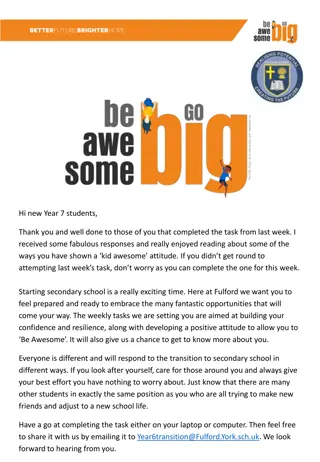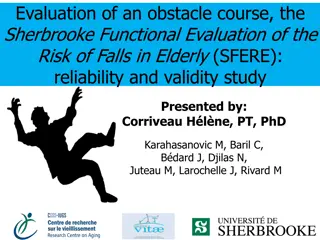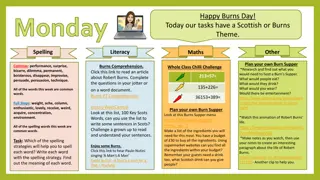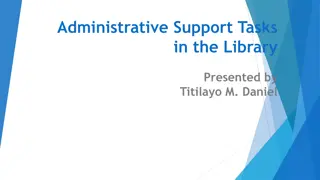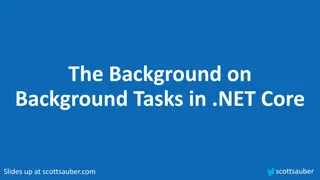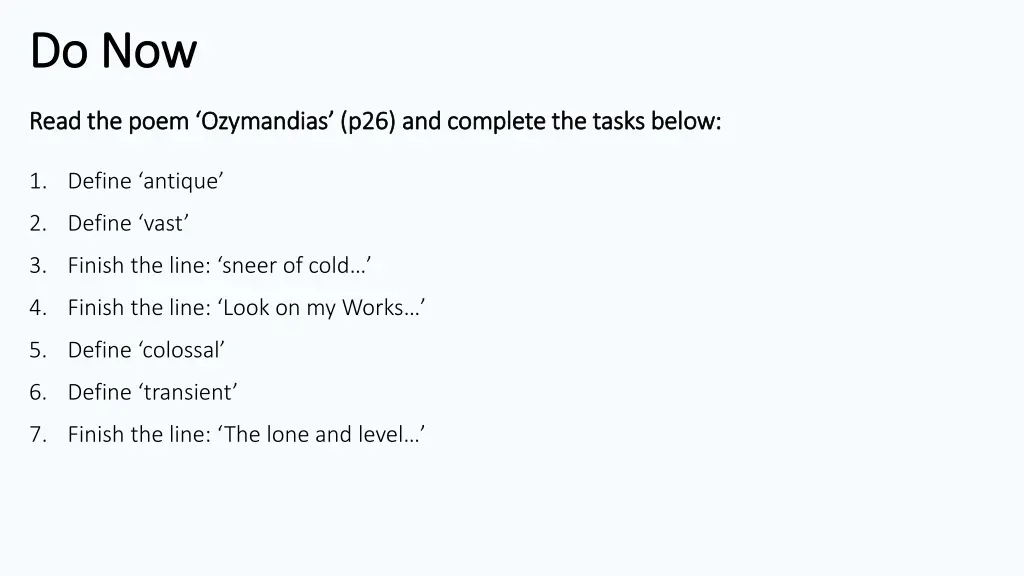
Analyzing Selected Poems: Ozymandias, London, The Prelude, My Last Duchess, Charge of the Light Brigade, Exposure
Explore key themes and literary devices in famous poems such as "Ozymandias," "London," "The Prelude," "My Last Duchess," "Charge of the Light Brigade," and "Exposure." Uncover the historical context, poetic elements, and deeper meanings within each poem through defined terms, line analysis, and insightful questions.
Download Presentation

Please find below an Image/Link to download the presentation.
The content on the website is provided AS IS for your information and personal use only. It may not be sold, licensed, or shared on other websites without obtaining consent from the author. If you encounter any issues during the download, it is possible that the publisher has removed the file from their server.
You are allowed to download the files provided on this website for personal or commercial use, subject to the condition that they are used lawfully. All files are the property of their respective owners.
The content on the website is provided AS IS for your information and personal use only. It may not be sold, licensed, or shared on other websites without obtaining consent from the author.
E N D
Presentation Transcript
Do Now Do Now Read the poem Ozymandias (p26) and complete the tasks below: Read the poem Ozymandias (p26) and complete the tasks below: 1. Define antique 2. Define vast 3. Finish the line: sneer of cold 4. Finish the line: Look on my Works 5. Define colossal 6. Define transient 7. Finish the line: The lone and level
Do Now Do Now Read the poem London (p27) and complete the tasks below: Read the poem London (p27) and complete the tasks below: 1. Name the important historical event that happened 1789 that influenced Blake 2. Define woe 3. Explain what the reference to mind forg d manacles means 4. Finish the line: Every blackening 5. Explain what blood running down the Palace walls suggests 6. Define infant 7. Finish the line: and blights with plagues .
Do Now Do Now Read the poem The Prelude (p28) and complete the tasks below: Read the poem The Prelude (p28) and complete the tasks below: 1. Identify the time of day at the start of the poem 2. Name the usual home of the little boat 3. Finish the line: I dipped my oars into 4. Identify the adjective that is used twice to describe the peak 5. Explain why the oars held by the speaker are trembling 6. Write down one difference between The Prelude and London 7. Define solitude
Do Now Do Now Read the poem My Last Duchess (p30) and complete the tasks below: Read the poem My Last Duchess (p30) and complete the tasks below: 1. Name the artist who painted the Duchess 2. Explain the significance of Duke controlling who draws the curtain 3. Finish the line: A heart how shall I say? too soon 4. Explain what the Duke implies when he says that the Duchess s looks went everywhere 5. Write down what the Duke says he chooses never to do 6. Identify the Roman god who is named at the end of the poem 7. Write down one similarity between My Last Duchess and Ozymandias
Do Now Do Now Read the poem Charge of the Read the poem Charge of the Light Brigade Light Brigade (p32) and complete the tasks below: (p32) and complete the tasks below: 1. Finish the line: Rode the 2. Explain the reference to the Valley of Death 3. Retrieve three verbs from stanza three 4. Explain the reference to Not the six hundred in stanza four 5. Explain why the cannons are behind the cavalrymen and not in front of them in stanza five 6. Identify which word is repeated in stanza six 7. Finish the line: Noble
Do Now Do Now Read the poem Exposure (p33) and complete the tasks below: Read the poem Exposure (p33) and complete the tasks below: 1. Identify where the soldiers are located on the battlefield 2. Provide two definitions of exposure 3. Finish the line: The poignant misery of dawn 4. Retrieve two short quotations that emphasise the brutality of the weather 5. Identify the line which is repeated four times 6. Write down two connotations of the dark-red jewels 7. Finish the line: All their eyes are
Do Now Do Now Read the poem Storm on the Island (p35) and complete the tasks below: Read the poem Storm on the Island (p35) and complete the tasks below: 1. Define wizened 2. Provide one connotation of the word tragic 3. Finish the line: Forgetting that it 4. Explain why the phrase exploding comfortably seems like a contradiction 5. Finish the simile: spits like a 6. Retrieve three words from the poem with military connotations 7. Finish the line: Strange
Do Now Do Now Read the poem Bayonet Charge (p36) and complete the tasks below: Read the poem Bayonet Charge (p36) and complete the tasks below: 1. Define the word bayonet 2. Look at the first two lines: pick out a single word that reveals the subject is a soldier 3. Finish the line: He lugged a rifle 4. Finish the line: In bewilderment then 5. Define the word patriotism 6. Identify the word in line 19 that suggests the soldier s movement is clumsy 7. Finish the line: His terror s
Do Now Do Now Read the poem Remains (p37) and complete the tasks below: Read the poem Remains (p37) and complete the tasks below: 1. Provide one reason why the poem is called Remains 2. Define the word looter 3. Identify the job of the speaker 4. Finish the line: I see every round as it 5. Explain what the phrase end of story means 6. Retrieve a quotation to show that the looter might not have been armed 7. Finish the line: His bloody life in
Do Now Do Now Read the poem Poppies (p39) and complete the tasks below: Read the poem Poppies (p39) and complete the tasks below: 1. Explain why people wear poppies on Armistice Day 2. Retrieve three words with military connotations in stanza one 3. Explain the reference to blackthorns 4. Finish the line: All my words flattened, rolled 5. Explain why the speaker feels she has to be brave 6. Explain the significance of the dove in stanza three 7. Finish the line: Your playground voice
Do Now Do Now Read the poem War Photographer (p41) and complete the tasks below: Read the poem War Photographer (p41) and complete the tasks below: 1. Identify where the photographer is at the start of the poem 2. Finish the line: The only light is red 3. Explain the reference to nightmare heat 4. Finish the line: and how the blood stained 5. Define agonies 6. Identify where the photographer is at the end of the poem 7. Finish the line: he earns his living and
Do Now Do Now Read the poem Tissue (p42) and complete the tasks below: Read the poem Tissue (p42) and complete the tasks below: 1. Provide two definitions of tissue 2. Identify the religious text named in stanza two 3. Finish the line: pages smoothed and 4. Define luminous 5. Provide two connotations of daylight 6. Finish the line: turned into
Do Now Do Now Read the poem The migr e (p43) and complete the tasks below: Read the poem The migr e (p43) and complete the tasks below: 1. Define migr e 2. Identify the month named in stanza one 3. Explain what the reference to the county being sick with tyrants means 4. Identify what tastes of sunlight 5. Finish the line: I have no passport, there s no . 6. Explain who the pronoun they refers to 7. Finish the line: and my shadow falls as .
Do Now Do Now Read the poem Checking Out Me History (p44) and complete the tasks below: Read the poem Checking Out Me History (p44) and complete the tasks below: 1. Finish the line: Bandage up me eye 2. Write down the name of the leader of the Haitian Revolution 3. Write down the name of the fire woman 4. Identify the two nurses in the poem who helped during the Crimean War 5. Finish the line: but dem never tell me bout Shaka 6. Finish the line: I carving out 7. Identify a line that it repeated in the poem
Do Now Do Now Read the poem Kamikaze (p46) and complete the tasks below: Read the poem Kamikaze (p46) and complete the tasks below: 1. Explain why the pilot only has enough fuel for a one-way journey 2. Define incantations 3. Retrieve two short quotations that convey the beauty and vitality of the natural world 4. Define cairn 5. Explain why the pilot was never spoken to again upon his return 6. Finish the line: only we children still 7. Finish the line: he must have wondered which

